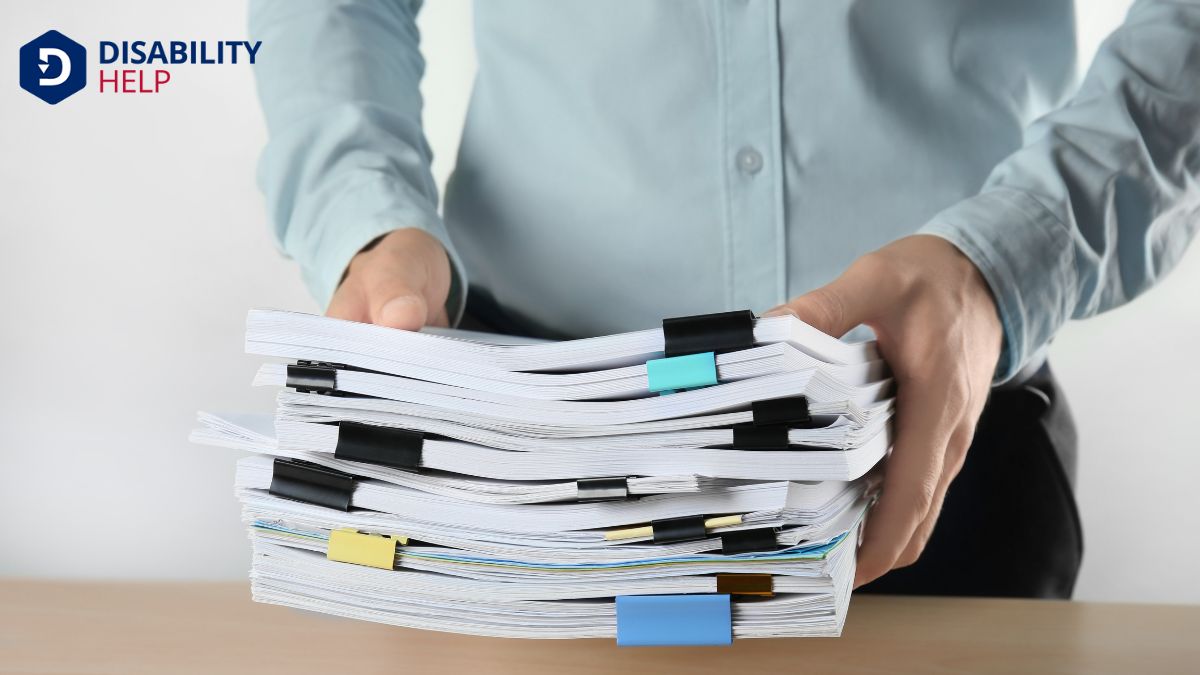When proving disability, we need to gather thorough documentation that paints a clear picture of the condition's impact on daily life. This includes medical records, detailed doctors' notes, and personal testimonies. Employment and educational documents can further strengthen the case by showing how the disability affects work or learning. We can also use additional supporting evidence from third parties. Are we ready to explore how each piece contributes to building a compelling case?
Key Takeaways
- Medical records documenting the history, treatments, and impact of the condition are essential.
- Doctor's notes and specialist evaluations detailing diagnosis, treatment, limitations, and prognosis strengthen disability claims.
- Personal statements describing daily challenges, emotional struggles, and specific examples provide a personal perspective.
- Employment and educational documents showing the impact on work or learning, including accommodationsModifications or adjustments in healthcare settings to support patients with disabilities. and absences, are crucial.
- Third-party statements from employers or educators validate the experiences and effects of the disability.
Medical Records and Reports

When we plunge into the world of disability documentation, the importance of medical records and reports can't be overstated. These documents form the backbone of our case, providing evidence to support our claims. They outline the history of our condition, treatments we've undergone, and how our disability impacts daily life.
Medical records give a detailed view of our health journey, while reports from healthcare professionals offer expert insights into our limitations. We must guarantee these records are thorough and up-to-date. This means regularly reviewing them for accuracy and completeness.
It’s not just about listing diagnoses; it's about painting a full picture of our challenges. By presenting clear and detailed medical documentation, we can effectively communicate the realities of our disability to those reviewing our case.
Doctor's Notes and Evaluations
Doctor's notes and evaluations play an important role in the documentation process for disability claims. They provide a professional perspective on our medical conditions, which is vital for proving our need for disability benefitsFinancial assistance provided to individuals who are unable to work due to a disability, such as Soc....
These notes often detail the diagnosis, treatment plans, and the impact of the condition on our daily lives. Having a doctor clearly state how our disability limits us can strengthen our claim considerably.
Additionally, evaluations from specialists give a deeper insight into specific conditions. If our disability involves mental health, a psychiatrist's evaluation is invaluable.
We should make certain our doctors include information on our limitations and prognosis. The more thorough and detailed the documentation, the better our chances of a successful claim.
Let's work closely with our healthcare providers for thorough and accurate evaluations.
Personal Statements and Testimonies
Although doctors' notes and evaluations are essential, our personal statements and testimonies provide an equally important perspective in the documentation for disability claims. They allow us to convey the daily challenges and limitations that mightn't be fully captured in medical assessments.
Here’s how we can effectively craft our personal narratives:
- Detail Daily Impact: Describe how our disability affects daily activities, including personal care, mobility, or communication.
- Express Emotional Struggles: Share emotional and psychological impacts, which help others grasp the full scope of our experiences.
- Include Specific Examples: Use personal anecdotes to illustrate the real-world effects on our lives, making our statements relatable and compelling.
Employment and Educational Documentation
For many of us, employment and educational documentation play an essential role in supporting our disability claims.
These records provide concrete evidence of how our conditions impact our ability to work or pursue education. Employment records can highlight any necessary accommodations or absences due to disability and may include performance evaluations or letters from employers outlining the need for modifications.
Similarly, educational documents such as Individualized Education Programs (IEPs), 504 Plans, or letters from school officials can show how our disabilities affect our learning.
Additional Supporting Evidence

While gathering employment and educational documentation is essential, we shouldn't overlook the importance of additional supporting evidence in strengthening our disability claims.
This evidence provides a more thorough view of how our disability affects our daily lives and can greatly bolster our case.
Here's what we should consider:
- Medical Records: Detailed notes from doctors and specialists can offer insight into the severity and long-term impact of our condition.
- Personal Statements: Written accounts from us and those close to us can describe the challenges faced daily, adding a personal perspective.
- Third-Party Statements: Letters from employers, coworkers, or educators can validate our experiences and how our disability hinders performance.
Conclusion
In proving disability, we must gather thorough documentation that paints a complete picture of the challenges faced. Medical records and detailed doctor’s notes lay the foundation, while personal statements bring our daily struggles to life. Employment and educational documents demonstrate the real-world impact of our condition. Let’s not forget the power of additional supporting evidence from third parties, which strengthens our claim. By assembling these pieces, we create a compelling case for our disability claim.






